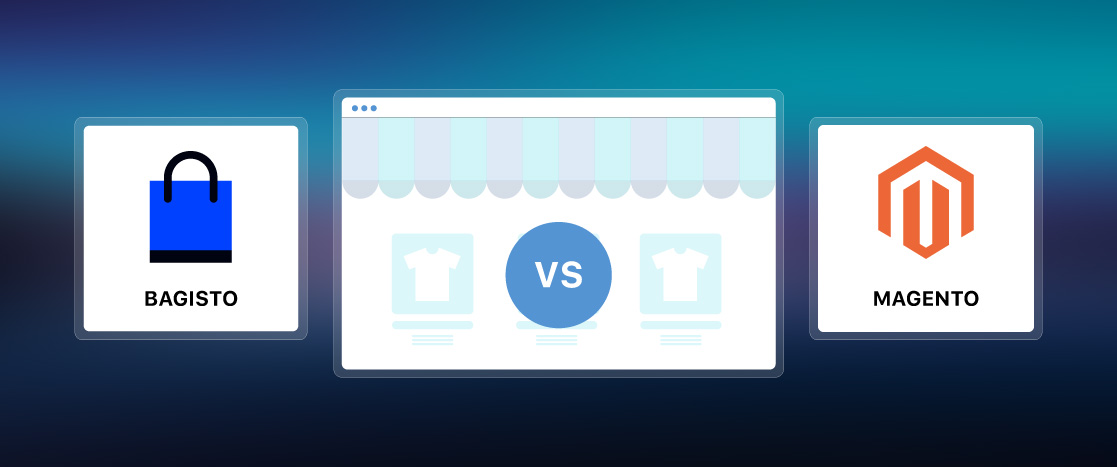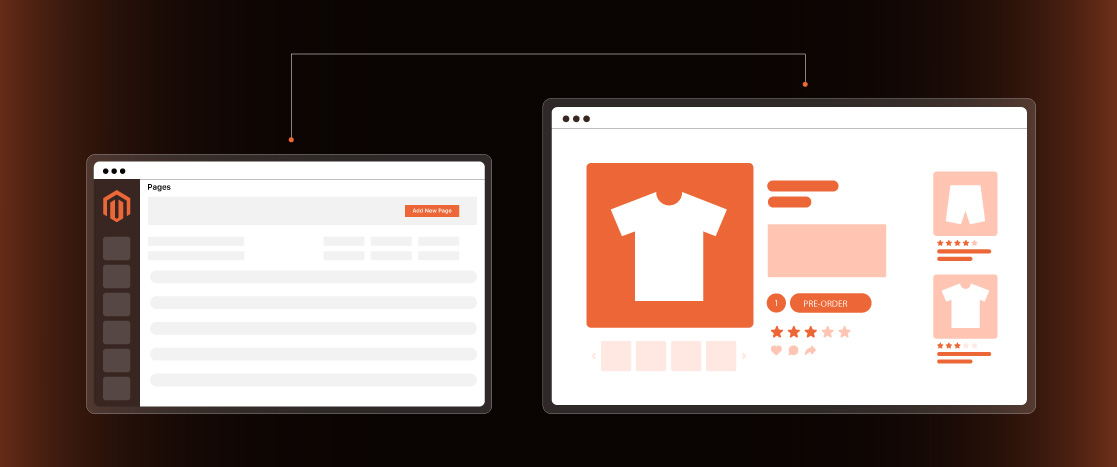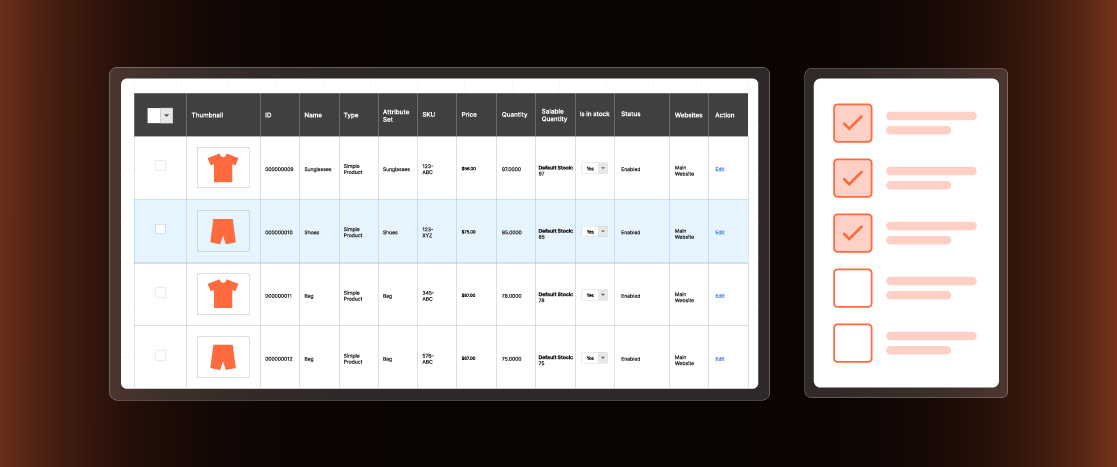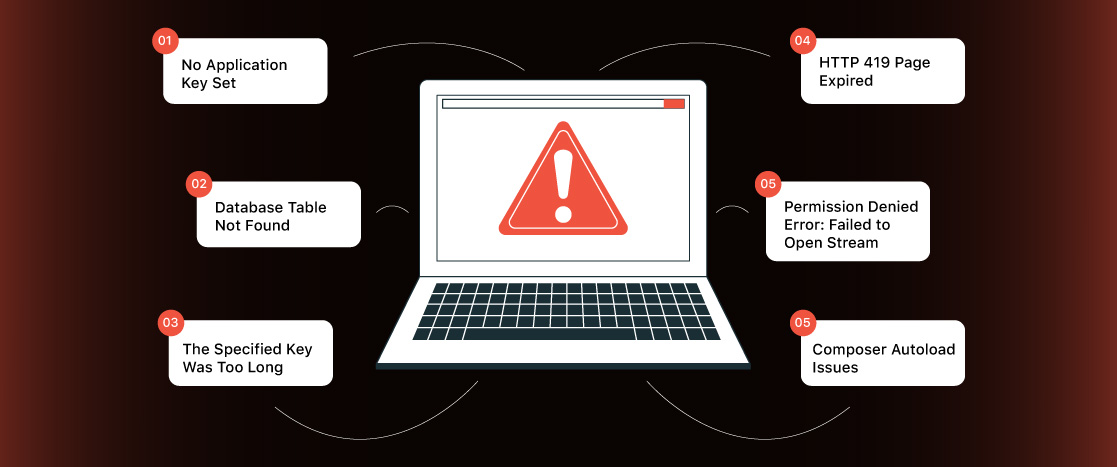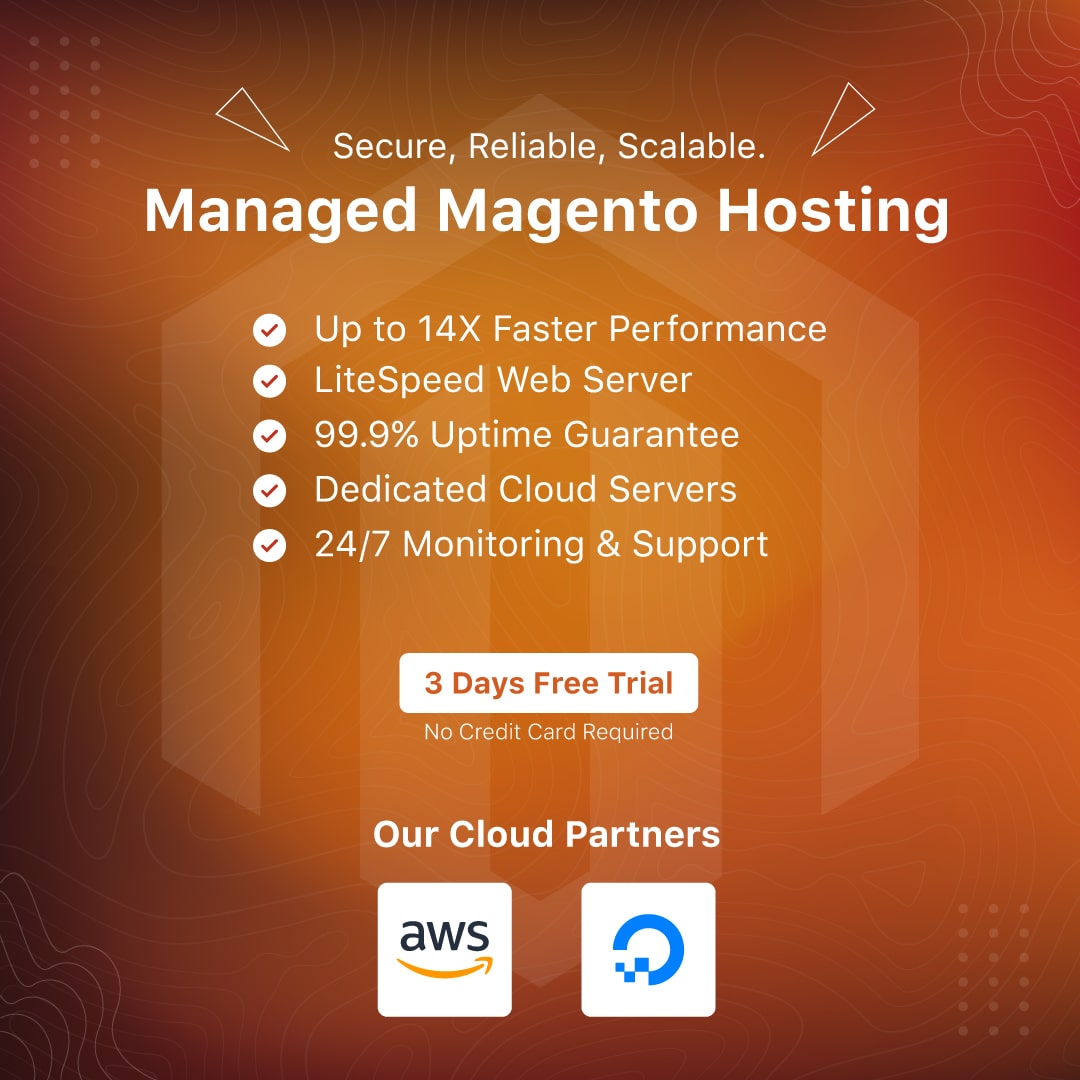Choosing the right ecommerce platform can be the difference between thriving online and struggling to grow. With so many options available in the market, many retailers find themselves confused between major platforms like Bagisto and Magento.
Both platforms offer powerful features like scalability, customization, and flexibility, along with their own unique strengths. However, selecting the wrong one can lead to technical issues, slow growth, and wasted time and money.
Making the right choice entirely depends on your business needs. What works well for one business might not work for another. Magento is a tried and tested solution, but it comes with complexity. Bagisto is modern and user-friendly, but it’s still gaining traction.
Without a clear comparison, it can be challenging to choose a platform that aligns with your business goals, team capabilities, and long-term plans. That’s why we tried to make it easier for you by comparing the two platforms, Bagisto vs Magento, in detail.
In this article, we’ve compared all main aspects of both platforms, from performance and cost to SEO, extensions, and support. Whether you’re launching a new store or planning a platform migration, it will help you make a smart and confident decision.
What is Bagisto?
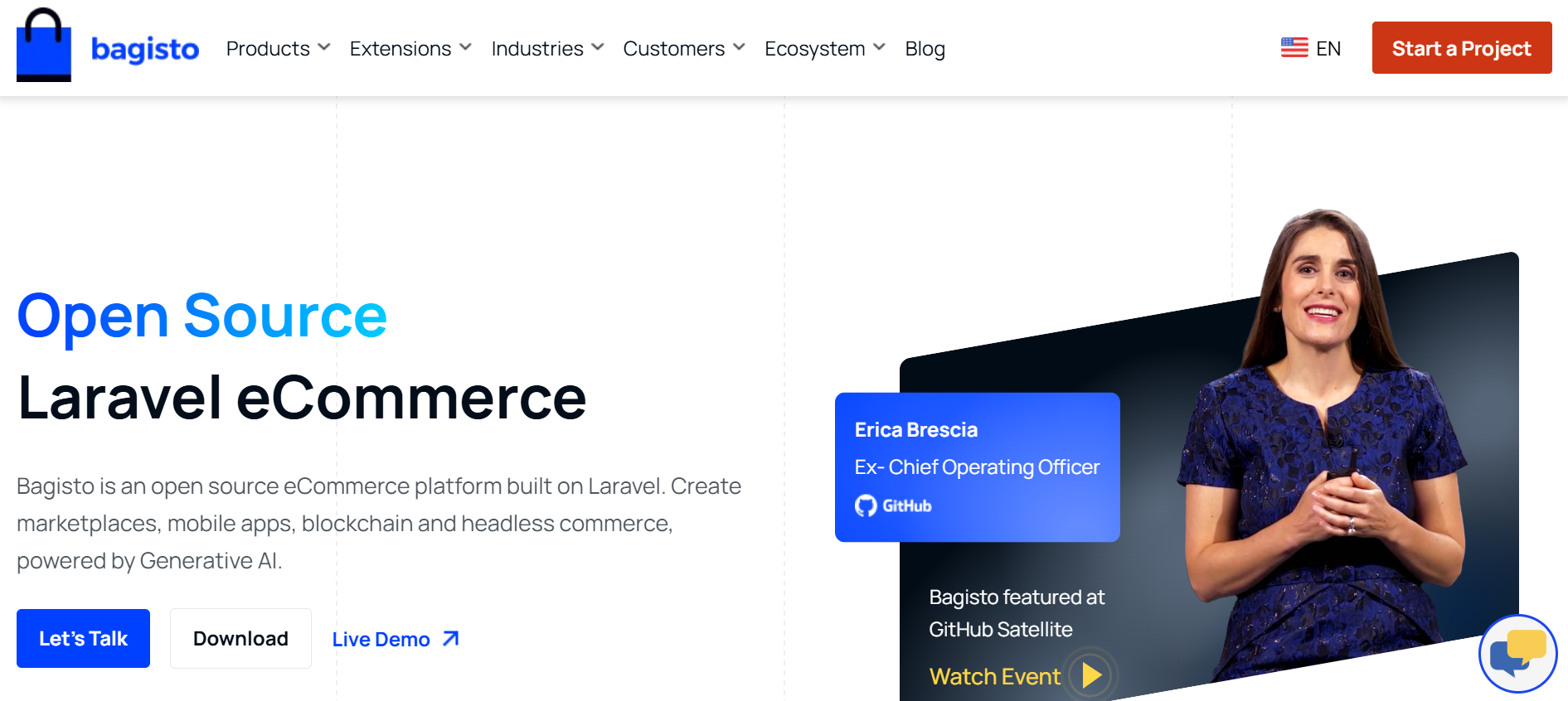
Bagisto is a modern Laravel-based ecommerce platform that offers a flexible solution for online retailers. As an open-source platform, it provides developers and business owners with complete control over customization and scalability, allowing them to tailor their stores without being tied to proprietary systems.
Whether you’re managing inventory, processing orders, or selling across multiple channels, its user-friendly admin panel makes these tasks easy to manage.
The platform also supports multi-channel selling, advanced catalog management, and localization, making it an ideal choice for businesses targeting international markets.
Bagisto is continually evolving, with regular updates and an active community. It maintains a balance between functionality and ease of use, making it an excellent choice for retailers who want an open-source platform with modern technology and a growing ecosystem that supports future growth.
Create your ecommerce website using Laravel today!
What is Magento?

Magento is an open-source, PHP-based ecommerce platform that offers businesses a wide range of customizable features for managing their online stores. It is one of the most widely used ecommerce solutions, known for its flexibility and scalability. Magento is often preferred by businesses with complex needs or plans for significant growth.
Its robust architecture makes it ideal for businesses of all sizes, from small retailers to large enterprises. Its ability to handle both B2B and B2C transactions makes it a top choice for businesses targeting a wide range of customers.
Magento allows for extensive customization, enabling businesses to tailor everything from product catalogs to customer experiences to meet their specific requirements.
Magento is continuously evolving, staying ahead of trends and maintaining its competitive edge through community-driven development. Businesses can rely on a powerful ecommerce solution that supports growth, whether they’re scaling operations or offering personalized experiences to their customers.
Create your ecommerce website using Magento today!
Bagisto vs Magento: Detailed Comparison for Online Retailers
Choosing the right ecommerce platform is crucial to your business success. Let’s look at the detailed comparison of Bagisto vs Magento for online merchants based on key features.
| Feature | Bagisto | Magento |
| Headless Commerce | Built-in headless support with REST APIs | PWA Studio + GraphQL (more complex setup) |
| UI & Usability | Clean, beginner-friendly dashboard | Powerful but has a steep learning curve |
| Admin Panel | Simple and organized | Robust but complex |
| Performance | Good for 500–1,000 users | Scales for 10,000+ users |
| Cost | Free and budget-friendly | Free (Open Source) or Paid (Commerce) with higher costs |
| Customization | Easy for Laravel developers | Extremely flexible but requires deep PHP knowledge |
| Scalability | Best for small to medium businesses | Ideal for enterprise-grade scaling |
| SEO & Marketing | Basic SEO tools | Advanced SEO & marketing features |
| Payment Gateway Support | Popular gateways supported (PayPal, Stripe, Razorpay, etc.) | Extensive native & third-party options |
| Shipping & Logistics | Simple shipping zone and real-time via extensions | Complex setups with table rates & rules |
| Extensions & Ecosystem | Growing marketplace | Massive extension ecosystem |
| Inventory Management | Multi-inventory & variants support | Enterprise-level inventory controls |
| Multi-Store & Multi-Language | Multi-store and language support via Laravel packages | Industry-leading global capabilities |
| Migration Tools | Basic migration via Laravel tools | Dedicated migration tool with SEO preservation |
| Security & Compliance | Basic features + plugin-based 2FA | AES-256 encryption, native 2FA, PCI-ready |
| Community & Support | Growing community + paid plans | Adobe-backed + global dev community |
Headless Commerce Support
Bagisto has a modern headless architecture that allows full decoupling of frontend and backend. Developers can use any frontend framework (React, Vue, etc.) and connect via RESTful APIs. This enables high flexibility and personalized storefront experiences.
Magento also supports headless commerce through PWA Studio and GraphQL APIs. However, the setup is more complex and may require enterprise-level resources for implementation.
Verdict: Bagisto excels in simplicity and faster adoption for headless setups, while Magento provides more power for enterprise-level headless builds.
User Interface and Usability
Bagisto offers a clean, intuitive dashboard built on Laravel. Its drag-and-drop page builder makes navigation and content editing easier for non-tech users.
Magento offers a powerful admin interface with advanced controls, but it has a steep learning curve. New users often require training or developer assistance to use it.
Verdict: Bagisto is better for beginners and SMBs, while Magento is for experienced developers.
Admin Panel Experience
Bagisto provides a simple and well-organized admin panel with essential tools and modules easily accessible.
Magento provides a robust but complex admin panel with a wide range of functionalities for experienced admins, but can be overwhelming to new admins.
Verdict: Bagisto is more beginner-friendly, and Magento caters to users who need more control.
Performance
Bagisto uses Laravel Octane and built-in caching for good performance on standard hosting and handles 500-1,000 concurrent users efficiently.
Magento supports Varnish, Redis, and full-page caching for better performance. It scales well with optimized hosting and handles over 10,000 concurrent users seamlessly.
Verdict: Magento is much better than Bagisto for high-traffic scenarios.
Cost
Bagisto is an open-source and cost-effective solution. It requires minimal costs for hosting and add-ons, ideal for startups and SMBs.
Magento is also open-source, but its commerce version is a premium option starting at $22,000 per year. Its hosting, extensions, maintenance, and development costs are also high.
Verdict: Bagisto is more budget-friendly, while Magento requires a higher investment for enterprise use.
Customization & Flexibility
Bagisto is built on Laravel, which offers a clean MVC structure, easy theme management, and modular development. Developers can override components with minimal effort.
Magento is exceptionally flexible but requires advanced PHP knowledge. It features powerful theme management and module development, though it’s more complex.
Verdict: Bagisto is easier to customize for Laravel developers, while Magento provides broader flexibility for experienced PHP teams.
Scalability
Bagisto is good for small to medium-sized stores because it requires infrastructure upgrades to support large-scale growth.
Magento is built for large-scale ecommerce as it handles high traffic, large catalogs, and complex operations with ease.
Verdict: Magento is the better choice for long-term scalability, while Bagisto is good for small businesses.
SEO & Marketing Capabilities
Bagisto offers SEO-friendly URLs, basic metadata control, and multilingual support. It is great for SMBs with limited marketing needs.
Magento offers advanced SEO tools, customizable meta tags, URL rewrites, and third-party integration for comprehensive marketing.
Verdict: Magento provides more robust SEO and marketing tools than Bagisto.
Payment Gateway Support
Bagisto supports popular payment gateways including PayPal, Stripe, Razorpay, and more. It’s easily extendable and performs out of the box.
Magento offers a wide range of native and third-party payment integrations with support for multiple currencies and locations.
Verdict: Both platforms offer strong support, but Magento provides broader global options.
Shipping & Logistics Integration
Bagisto has a simple logistics module that supports shipping zones, flat rates, and real-time shipping integration via extensions.
Magento has highly configurable shipping settings and supports table rates, drop shipping, and custom rules.
Verdict: Magento excels in complex shipping setups, while Bagisto is better for simple shipping setups.
Third-Party Extensions & Ecosystem
Bagisto offers a growing marketplace with essential ecommerce plugins, but is still limited in comparison.
Magento has a vast ecosystem with thousands of extensions covering everything from ERP integration to AI-powered personalization.
Verdict: Magento has a much richer ecosystem than Bagisto.
Product & Inventory Management
Bagisto offers multi-inventory support, product attributes, and variant management. It is best for small to medium catalogs.
Magento offers advanced inventory management features, support for large catalogs, automated stock updates, and B2B capabilities.
Verdict: Magento is better equipped for complex inventory systems, while Bagisto is good for small to medium inventory systems.
Multi-Store & Multi-Language Support
Bagisto lets you easily set up multiple storefronts and language support via Laravel packages.
Magento offers industry-leading multi-store functionality with advanced control over languages, currencies, and catalogs per store.
Verdict: Magento leads for global and enterprise-scale operations.
Migration Capabilities
Bagisto provides basic data migration via Laravel tools. It is ideal for small projects but limited in automation.
Magento features a dedicated Data Migration Tool with support for large datasets, URL redirection, and SEO continuity.
Verdict: Bagisto supports basic migration capabilities while Magento supports more advanced and reliable migrations.
Security & Compliance
Bagisto provides basic security features, with encryption and optional plugin-based 2FA, but requires manual PCI compliance handling.
Magento provides enterprise-grade security with AES-256 encryption, native 2FA, regular security patches, and PCI-ready infrastructure.
Verdict: Magento is great for businesses requiring high security standards, while Bagisto is good for basic security features.
Community & Support
Bagisto has a growing open-source community with free forums and reasonably priced paid support plans starting at around $249/year.
Magento is backed by Adobe with a massive developer community, enterprise support, and dedicated agencies worldwide.
Verdict: Magento has a more mature and extensive support network than Bagisto.
Which Ecommerce Platform Should You Use? (Bagisto vs Magento)
If you’re a startup or small to mid-sized business looking for an easy-to-use, customizable, and cost-effective solution with decent performance and support, Bagisto is a great choice.
If you’re an enterprise or scaling business with complex requirements, larger budgets, and the need for advanced features, scalability, and global reach, Magento is the better fit.
Conclusion
Bagisto and Magento are both powerful ecommerce platforms, but they cater to different business needs. The choice depends on your business size, technical expertise, and long-term ecommerce goals.
Bagisto is a simple and affordable solution built on the Laravel framework, making it ideal for startups, small to mid-sized businesses, or developers seeking a clean, modern tech stack and quick customization without high overhead costs.
In comparison, Magento is an enterprise-level platform known for its flexibility, scalability, and expansive ecosystem. It is best suited for large businesses with complex operations, global ambitions, and the resources to invest in ongoing development and maintenance.
If you prioritize ease of use, fast setup, and budget-friendly development, Bagisto is a smart choice. However, if your business requires a robust, feature-rich platform with long-term scalability and enterprise-level support, Magento is the better fit.
Carefully evaluating your business goals and technical capacity will help you choose the platform that saves you time, money, and future challenges.
If you’re looking for platforms other than these, explore more comparisons between various platforms.
